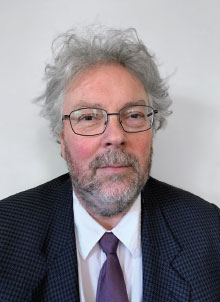Updated Physician-Aid-in-Dying Law Sparks Controversy in Canada
Abstract
The legislation broadens the legal use of medically assisted suicide and is slated to permit assisted suicide for people with serious mental illness starting in 2023.

The Canadian Parliament and Senate passed legislation in March codifying major changes in Canada’s laws regarding medical assistance in dying (MAID), as physician aid in dying is known there. According to the government’s official website, the revised law permits MAID for a range of conditions immediately, while for individuals with serious mental illness seeking such assistance, the law will not take effect until March 17, 2023.
Addressing the changes for people who may be weighing MAID for severe mental illness, the government stated the following:
“If you have a mental illness as your only medical condition, you are not eligible to seek medical assistance in dying. … This temporary exclusion allows the Government of Canada more time to consider how MAID can safely be provided to those whose only medical condition is mental illness.
“To support this work, the government will initiate an expert review to consider protocols, guidance, and safeguards for those with a mental illness seeking MAID and will make recommendations within a year (by March 17, 2022).
“After March 17, 2023, people with a mental illness as their sole underlying medical condition will have access to MAID if they are eligible and the practitioners fulfill the safeguards that are put in place for this group of people. …”
While many physicians and others have long been sympathetic to allowing medical professionals to help those with terminal illness die peacefully, the fear has been that medically assisted death could become a substitute for adequate—and more costly—medical care. Those concerns are growing with the expansion of MAID in Canada.

John Maher, M.D., says that the new law cannot be justified when Canadians do not have universal access to mental health care.
During a hearing before the Canadian Senate’s Committee on Legal and Constitutional Care on February 4, psychiatrist John Maher, M.D., criticized the proposed legislation. Maher is the editor-in-chief of the Journal of Ethics in Mental Health and a specialist in medical ethics with a focus on competency issues. Maher said that he treats people only with the most severe and persistent mental illness.
Canada now offers MAID, but not universal palliative care, disability support, or mental health care, Maher commented. “Do we congratulate ourselves for our compassion in giving people an easier way to die while depriving them of the resources they need to live?” Such legislation cannot be justified while the health care rights of Canadians are ignored, said Maher.
“Clinical relationships are already being profoundly undermined,” said Maher. “My patients are saying ‘Why try to recover when MAID is coming, and I’m going to be able to choose death?’ Some of my patients keep asking for MAID while they’re actually getting better but can’t recognize that yet.
Status of Physician Aid in Dying in Other Places
As of 2021, medically assisted suicide for defined terminal illness is legal in the United States in nine states and the District of Columbia. The nine states are California, Colorado, Hawaii, Maine, New Jersey, New Mexico, Oregon, Vermont, and Washington. The practice is not permitted for people with a disability or mental illness. In Montana, assisted suicide is legal through a Montana State Supreme Court ruling; there is no legislation to regulate it.
In 2002 the Netherlands and Belgium widened their assisted suicide guidelines to permit euthanasia, and over time the guidelines have broadened to include not only patients with terminal illness but also those with severe disability and constant and unbearable psychological pain. Since then, this has been applied to patients suffering solely from severe psychiatric illness, with the prevalence of voluntary euthanasia for psychiatric illness increasing over time.
Other countries where voluntary euthanasia and/or doctor-assisted suicide is legal include Colombia, Luxembourg, Switzerland, and parts of Australia.
“Social engineering always begins with language engineering,” he observed. “Terminal illness means sure death and no hope, while mental illness ‘means no death and sustaining hope—profoundly different states of being.’ ”
Offering medically assisted death because effective treatment is not available is indefensible, Maher said. “Death versus no treatment is not an autonomous choice. When the parents of a young woman recently asked me if I was going to help their daughter get better or kill her, the moral perversion of all this couldn’t have been clearer to me.”
That the new Canadian law would eventually permit medically assisted death for people with mental illness considered “irremediable” prompted psychiatrist Mark Sinyor, M.D., to tell the committee that he, like many other Canadian psychiatrists, shares the concern that there is no clear definition of “irremediable” in the context of psychiatric illness.
Sinyor is the former vice president of the Canadian Association for Suicide Prevention and an associate professor of psychiatry at the University of Toronto. He specializes in the treatment of adults with complex mood and anxiety disorders at Sunnybrook Health Sciences Center in Toronto. His research focuses on how media and messaging influence suicide.
Helping patients with serious mental illness die should not be called MAID but rather “physician-induced death” “as it is different in kind from facilitating a death process already occurring,” Sinyor commented. Inducing death as a means of coping with emotional pain is suicide, he said. Evidence from his work shows that a public emphasis on death as a useful coping strategy for emotional suffering often increases the incidence of suicide, while an emphasis on hope, survival, and resilience may lower suicide.
Psychiatrist Sephora Tang, M.D., told the Senate committee that patients could be approved for MAID without assurance that they have received adequate support or care. The absence of appropriate care and support in many cases amplifies suicidal thinking, she noted. Tang is a co-author of the “MAID to MAD” declaration—“Medical Assistance in Dying becomes Medically Assisted Death” (see MAiD to MAD). It was signed by more than 1,000 Canadian physicians.
Tang said that the bill as initially drafted would not have protected physicians who refused to make referrals for MAID. The final version, however, protects physicians from being coerced into providing MAID, according to the official statement provided by the Canadian government.

As medical assistance in dying spreads across the globe, all psychiatrists “may eventually confront patients asking why it is not available for them,” says Elaine Xu, M.D.
Psychiatric News spoke with Elaine Yingcheng Xu, M.D., who at the time of the interview was completing her psychiatry residency at the University of Pennsylvania Perelman School of Medicine. Prior to studying medicine, Xu studied philosophy and neuroscience, and in 2019 co-wrote an article in the American Journal of Bioethics titled “Physician Aid-in-Dying for Individuals With Serious Mental Illness: Clarifying Decision-Making Capacity and Psychiatric Futility.” She was also a presenter at APA’s online 2021 Annual Meeting on the ethics and framework for considering medically assisted suicide for people with serious mental illness.
“The most important thing in my perspective is that MAID is spreading across the globe, and it’s a really important issue for all psychiatrists to be thinking about” since psychiatrists may eventually confront patients asking why it is not available for them, said Xu. “In order for us to be ready for that ... and be responsible advocates for our patients, we need to be thinking really deeply and clearly about when we can appropriately make such a recommendation.”
How “terminal” mental illness is defined and what constitutes “futility” in psychiatry are central to this conversation, said Xu—and psychiatry has not been able to do so up to now. Also, how to establish whether or not a mentally ill patient is competent to make a life-ending decision also has yet to be determined, Xu commented. In addition, she said, the United States lacks universal access to high-quality health care—a similar point made repeatedly by Canadian psychiatrists who live in a country where there is universal health care but an absence of adequate, intensive care for people with serious mental illness. Such inequities in health care add “another layer to this already very complex question,” said Xu.
If, however, psychiatric illness is seen as comparable to any other medical illness, then psychiatric patients should eventually be eligible for the same considerations as other patients asking for medical assistance in dying, she said. Given the current limitations in defining terminality and futility in psychiatry, however, it is essential that the profession ponder more clearly how we care for chronically mentally ill patients and how we can better provide comprehensive palliative care, said Xu. ■
“Current Death With Dignity Laws” is posted here.
“Psychiatric Euthanasia and the Ontology of Mental Disorder” is posted here.
“Government Agrees Mentally Ill Should Have Access to Assisted Dying—in 2 years” is posted here.
“Physician Aid-in-Dying for Individuals With Serious Mental Illness: Clarifying Decision-Making Capacity and Psychiatric Futility” is posted here.



